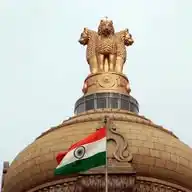
UPSC Polity UPSC UPSC UPSC UPSC UPSC UPSC UPSC UPSC UPSC UPSC UPSC™ UPSC UPSC UPSC UPSC UPSC UPSC™
January 20, 2025 at 01:54 PM
🔆The article discusses the recent OYO policy disallowing unmarried couples from staying in their hotels.
Key Points:
✅Policy Implications: OYO's policy raises concerns about privacy rights and freedom of association.
✅Legal Challenges: The article examines the legal implications of this policy, particularly in relation to constitutional rights like the right to privacy and freedom of association.
✅Constitutional Framework: It discusses the limitations of enforcing fundamental rights against private entities and explores the concept of "horizontal" application of rights.
✅Need for Legislative Intervention: The article suggests that legislation may be necessary to protect individuals from discrimination based on marital status in the private sphere.
✅Wider Implications: The article highlights the broader implications of such policies for individual autonomy and freedom in a democratic society.
✅Possible UPSC Prelims Question:
Which constitutional right is most relevant to the debate surrounding OYO's policy on unmarried couples?
A. Right to equality
B. Right to freedom of speech and expression
C. Right to privacy
D. Right to education
✅Possible UPSC Mains Question:
Discuss the interplay between fundamental rights and private actors in India. Analyze the implications of OYO's policy on unmarried couples for the protection of individual liberties and the role of the state in upholding these rights in the context of a growing commercial sphere.
❤️
1